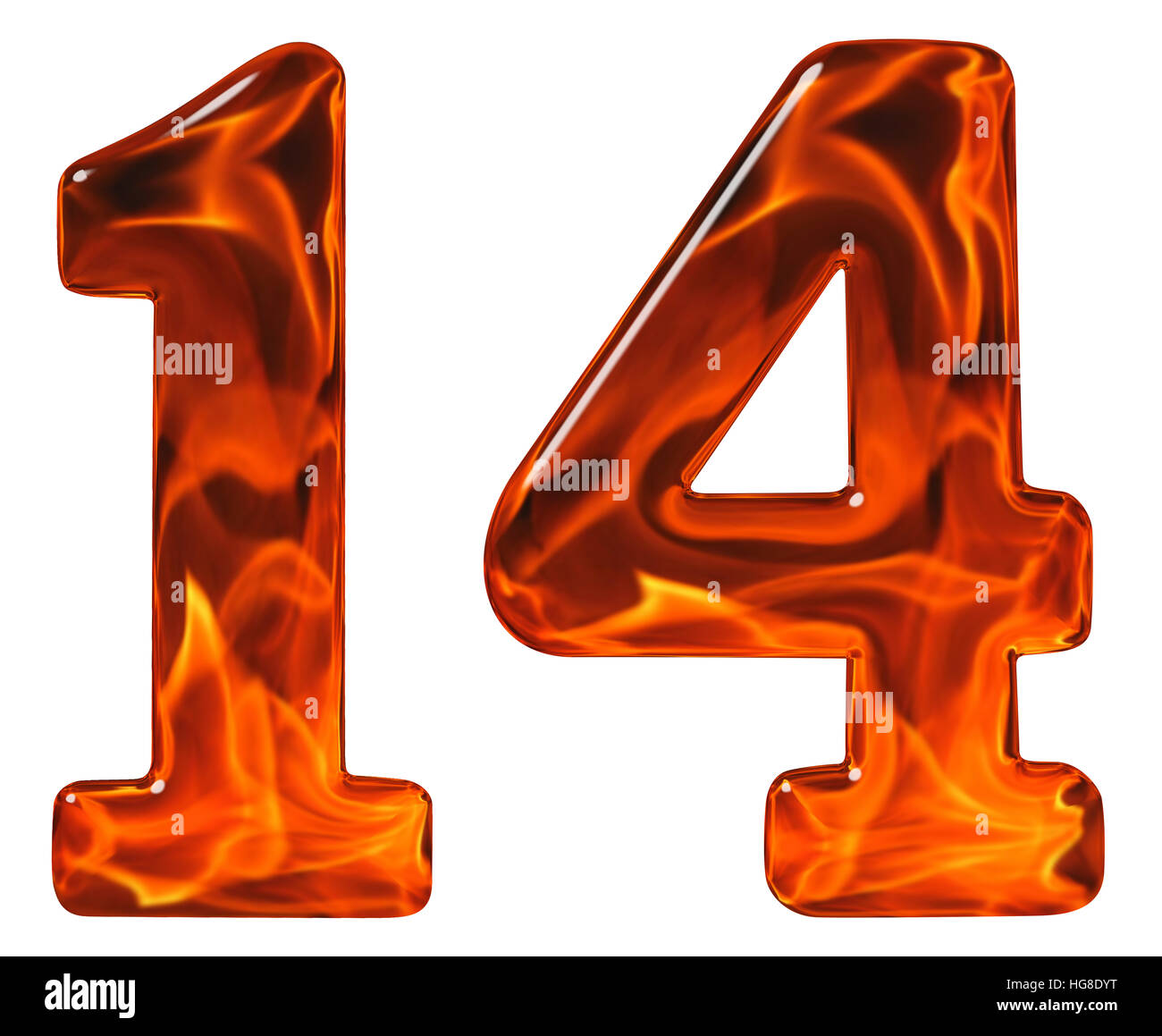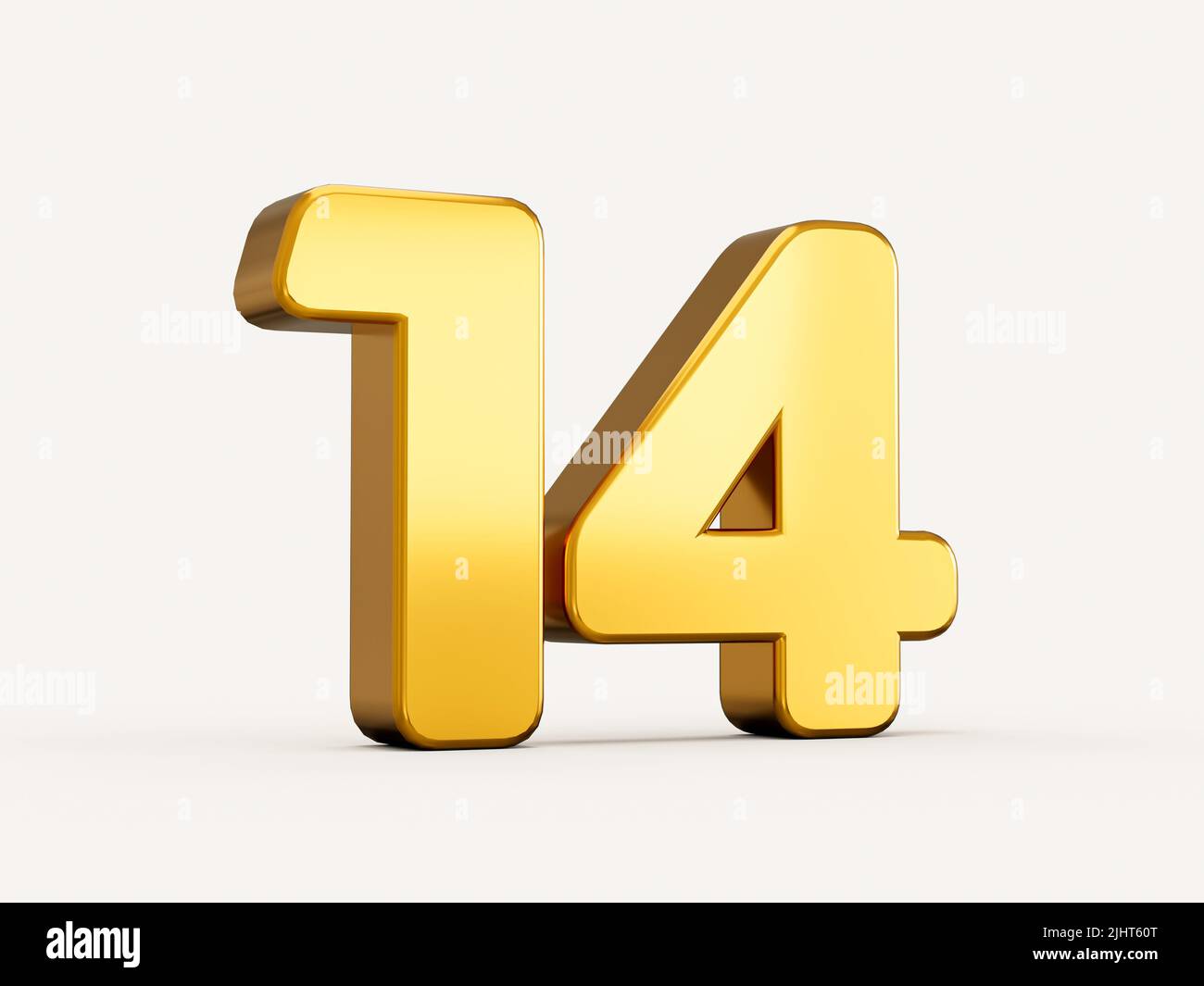The 14 Words - A Look At A Slogan's Meaning
Sometimes, a few words can carry a very heavy weight, so it's almost like they hold a lot of meaning for different groups of people. One such phrase, often called "the 14 words," appears in many places, sometimes as graffiti, like what was seen on a wall in Elektrostal, a place near Moscow, Russia. This phrase often shows up alongside other symbols, such as a swastika and the numbers "14/88," which, you know, are also quite significant in their own way.
This particular collection of words, often shortened to just "14" or "1488," points to two specific sayings that came from an American domestic terrorist named David Eden Lane. He was, in a way, one of the first people, one of nine, who helped start a group that is no longer active, a white supremacist terrorist organization known as The Order. These words, in some respects, are also connected to 88 ideas or rules that Lane put together.
When you see "1488," or maybe "14/88" or "8814," it's actually a combination of tributes. It pays respect to "the 14 words" and also shows support for Adolf Hitler. The "88" part stands for "HH," which is "Heil Hitler," because the letter 'H' is the eighth letter in the alphabet, so it's a kind of code, you might say.
- Uncover The Secrets Of The Goblin Cave Bl Dungeon An Adventurous Guide
- The Personal Life Of Oliver Riedel Exploring His Wife And Marriage
- The Hottest In Entertainment Hd Hub 4u
- Incredible Hd Hub For Your Web Series Explore Now
- The Ultimate Sflix Hub Your Source For Premium Content
Table of Contents
- What Are The 14 Words, Really?
- Who Was David Lane and His Connection to The 14 Words?
- David Lane - Personal Details
- How Does 1488 Relate to The 14 Words?
- What Beliefs Do The 14 Words Represent?
- Why Is This Slogan Still Around?
- The 14 Words - A Symbol's Impact
- American National Socialism and The 14 Words
What Are The 14 Words, Really?
So, what exactly are "the 14 words" that get so much attention? This phrase is a reference to a very well-known white supremacist saying, possibly the most popular one across the globe. The full slogan states: "We must secure the existence of our people and a future for white children." This saying, in a way, was first thought up by David Lane, the same person mentioned earlier, who was a part of The Order, a white supremacist terrorist group. Lane, as a matter of fact, passed away while he was in prison back in 2007. This phrase, you know, is quite short, but it carries a very specific message for those who use it. It's just a set of words that has become a kind of watchword for a particular belief system. People who follow these ideas often use these words to express a central part of their views. It's a phrase that has, in some respects, become a shorthand for a much larger set of ideas, ideas about race and the future of a specific group of people. The words themselves are simple, yet they form a statement that is quite strong for those who believe in them. They are, essentially, a call to action for some, a guiding principle, you might say, for their way of thinking about the world and the people in it. The phrase is quite direct, leaving little room for misinterpretation of its central idea among its followers. It's a statement that has, in a way, been around for some time now, continuing to be used by various groups.
Who Was David Lane and His Connection to The 14 Words?
David Lane was a figure who played a big part in the creation and spread of "the 14 words." He was, you know, an American domestic terrorist, and he was one of the nine people who helped start The Order, that white supremacist terrorist organization that is now no longer in operation. This group was, in a way, a very serious organization with specific goals. Lane himself was quite a revered person among those who identify as white nationalists. He was seen as a kind of icon, someone important within that particular movement. It's important to remember that he was the person who actually coined, or created, "the 14 words" slogan. His ideas, in some respects, were also put down in writing. He contributed to a book titled "Deceived, Damned & Defiant." This book, apparently, contains some of his thoughts and beliefs, which further spread his influence. He was, in fact, a central figure in bringing these specific ideas into the open and giving them a concise form. His connection to "the 14 words" is direct and quite significant, as he is the one credited with putting those specific words together. He was, in a way, a key person for those who shared his viewpoints, someone whose thoughts and actions shaped a particular part of a movement. His passing in 2007, while he was in a federal prison in Terre Haute, Indiana, marked the end of his life, but his influence, particularly through "the 14 words," continued on, you see.
- Kirsten Sweet Onlyfans Leaks And Exclusive Content
- Discover The Gateway To Vegas Vegasist Unveiled
- Is Guy Fieri A Believer Unveiling The Personal Faith Of The Culinary Star
- Discover Desimms The Ultimate Gaming Destination
- The Ultimate Gore Website Explore Gorecentercom
David Lane - Personal Details
Here are some details about David Lane, based on what we know:
| Role | Originator of "the 14 words" slogan |
| Group Affiliation | Founding member of The Order (a white supremacist terrorist organization) |
| Status | American domestic terrorist |
| Passing | Died in prison in 2007 |
| Age at Passing | 68 years old |
| Location of Passing | Terre Haute, Indiana, federal prison |
| Published Work | Author of '14 words,' contributed to 'Deceived, Damned & Defiant' |
This information, you know, gives us a quick look at some key facts about the person behind "the 14 words." It helps to place him and his work in context, showing his role in the creation of this specific phrase and his connection to certain groups. He was, in a way, a very influential figure for those who shared his views, and his writings, apparently, helped spread his ideas further. These details, in some respects, are important for anyone wanting to learn more about the background of this slogan and the individual who created it. It's just a way to gather the basic facts about his life and his connection to these specific words and the ideas they represent. His story, you see, is tied very closely to the history of this phrase.
How Does 1488 Relate to The 14 Words?
The numbers "1488" are very closely tied to "the 14 words," so it's almost like they are two parts of the same idea for some people. This hate symbol, which you might also see written as "14/88" or "8814," is a combination of two separate tributes. The first part, the "14," refers directly to "the 14 words" slogan itself. This means that when someone uses "14" in this context, they are, in a way, calling to mind that specific phrase about securing the existence of a particular group of people. It's a shorthand, you might say, for that longer statement. The second part, the "88," is an endorsement of Adolf Hitler. This is because the letter 'H' is the eighth letter in the alphabet, so "88" stands for "HH," which is a common way to say "Heil Hitler" among certain groups. Therefore, when white supremacists use "1488" or "14/88," they are, in fact, combining these two very specific references. They are showing support for "the 14 words" and, at the same time, expressing admiration for Adolf Hitler. It's a way, you know, for them to communicate a set of beliefs very quickly and clearly to others who share those views. This combined symbol is, in some respects, regarded as a direct endorsement of white supremacist beliefs. It's just a very compact way for people to show where they stand on certain issues related to race and ideology. The numbers themselves have no inherent meaning outside of this specific context, but when put together in this way, they carry a very strong message for those who are familiar with it, you see.
What Beliefs Do The 14 Words Represent?
"The 14 words" truly sum up a particular belief system, so it's almost like they are the core statement of these ideas. This slogan frames the idea of the survival of the white race as a goal of the highest importance, something paramount. It suggests, in a way, that this survival is the most important thing to work towards. By doing this, the slogan also implies that other races and the idea of many different cultures living together, what we call multiculturalism, pose a very real danger to this survival. It suggests they are a threat that could, you know, end the existence of the white race as they see it. The phrase itself is quite direct in its aim, focusing on the future of "white children" and the "existence of our people." This is, in some respects, a very specific way of looking at the world, where one group's survival is seen as being at odds with the presence or growth of other groups. It's a belief system that sees differences as a source of conflict rather than something to be embraced. The words, you see, are not just a simple statement; they are a declaration of a worldview that is, in a way, exclusive and, frankly, quite concerning to many. They serve as a kind of guiding principle for those who hold these views, shaping their actions and their thoughts about society. The phrase also includes another idea: "because the beauty of the white Aryan woman must not perish from the earth." This adds another layer to the belief system, emphasizing a particular view of beauty and race. It's just another way these ideas are expressed, tying into a broader set of racial beliefs. These words, therefore, are not just a random collection; they are a very specific and intentional statement of a particular ideology, you know.
Why Is This Slogan Still Around?
Despite the passage of time and the fact that its creator, David Lane, passed away in prison, "the 14 words" slogan is still very much present, so it's almost like it has a life of its own now. The phrase has become a deeply rooted symbol for those who share white supremacist beliefs, a kind of lasting mark. It continues to be used because it very effectively captures a core idea for these groups in a short, memorable way. When a symbol or a phrase becomes so central to a movement, it tends to stick around, even if the original person who made it is no longer here. The simplicity and directness of the slogan mean it's easy to remember and spread. It acts as a kind of rallying cry, you know, for people who feel that their group's existence is threatened. The fact that it's often combined with other symbols, like the "88," also helps it to persist, as it becomes part of a larger, interconnected system of signs and meanings. People who follow these beliefs often pass them down, and symbols like "the 14 words" become part of that tradition. It's just how ideas, especially strong ones, can continue to influence people over many years. The slogan, in some respects, has transcended its origins and become a standalone representation of a particular ideology. It's a very clear example of how certain phrases can gain a lasting presence within specific communities, continuing to be used and understood by new generations of followers, you see.
The 14 Words - A Symbol's Impact
The impact of "the 14 words" as a symbol is quite noticeable, so it's almost like it leaves a distinct mark wherever it appears. This phrase, along with its numerical companion "1488," is widely regarded as a hate symbol. This means that for many, seeing or hearing these words brings to mind ideas of white supremacy and the harm associated with such beliefs. When graffiti with "14/88" appears on a wall, like the one in Elektrostal, Moscow, Russia, it's not just random markings; it's a very clear message. It shows that these specific ideas are present in that location, and that people who hold these views are active there. The use of such symbols can create feelings of unease or fear for those who are targeted by the beliefs they represent. It's just a way that certain ideologies make their presence known in public spaces. The fact that these words are connected to a domestic terrorist organization, The Order, also adds to their impact, showing a link to groups that have engaged in violent acts. The symbol, in some respects, serves as a visual or verbal declaration of a particular worldview that is, you know, based on exclusion and racial hierarchy. It's a way for people to express their allegiance to a set of ideas that are considered harmful by a large part of society. The very presence of "the 14 words" in public view can be a reminder of the ongoing challenges posed by extremist ideologies. It's a very real symbol with very real consequences for how people feel and interact in their communities, you see.
American National Socialism and The 14 Words
There's a clear connection between "the 14 words" and the idea of American National Socialism, so it's almost like one informs the other. Groups committed to American National Socialism aim to bring their beliefs, first created and put into practice by their late commander George Lincoln Rockwell, out of an earlier time. They want to move beyond what they call "phase one activities," which, in a way, served their purpose well back then, and bring these ideas into the current century, the 21st century. "The 14 words" fit right into this aim. The phrase, you know, encapsulates a core part of their belief system by focusing on the survival of the white race as a very important goal. It suggests that other races and multiculturalism are a threat to this survival, which aligns with the principles of American National Socialism. This movement, in some respects, seeks to adapt its foundational ideas to modern times, and slogans like "the 14 words" provide a concise way to express these enduring principles. It's just a continuation of a specific line of thought, updated for a new era. The words serve as a kind of ideological anchor, providing a consistent message for followers across different periods. This shows how certain phrases can become deeply embedded within a movement's identity, helping to carry its core message forward, even as the movement itself seeks to evolve. The connection is quite direct, showing how these words are a living part of an ongoing ideological effort, you see.
- Download Hollywood Movies From Wwwbolly4ucom
- Explore The Culinary Scene Of Las Vegas With Vegasfoo
- Discover The Latest Movies And Tv Shows At Hdhub4ucom In 2024
- Is Sosie Bacon Married Uncovering The Truth Behind The Rumors
- Discover The Captivating World Of Ullu Web Series Your Ultimate Entertainment Destination

Number 14 Wallpaper

3d illustration of golden number 14 or fourteen isolated on beige

3d illustration of red number 14 or Fourteen inner shadow 22722310 PNG